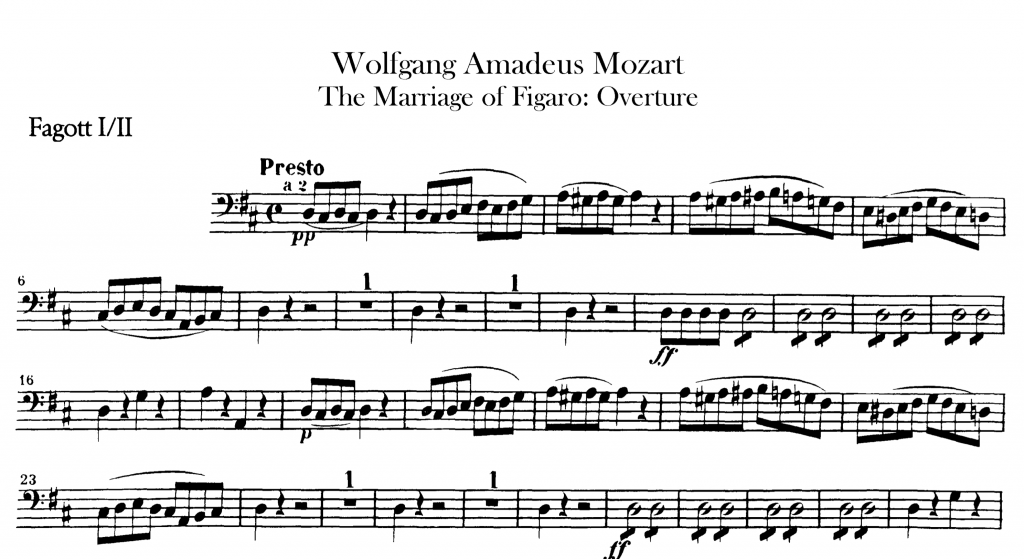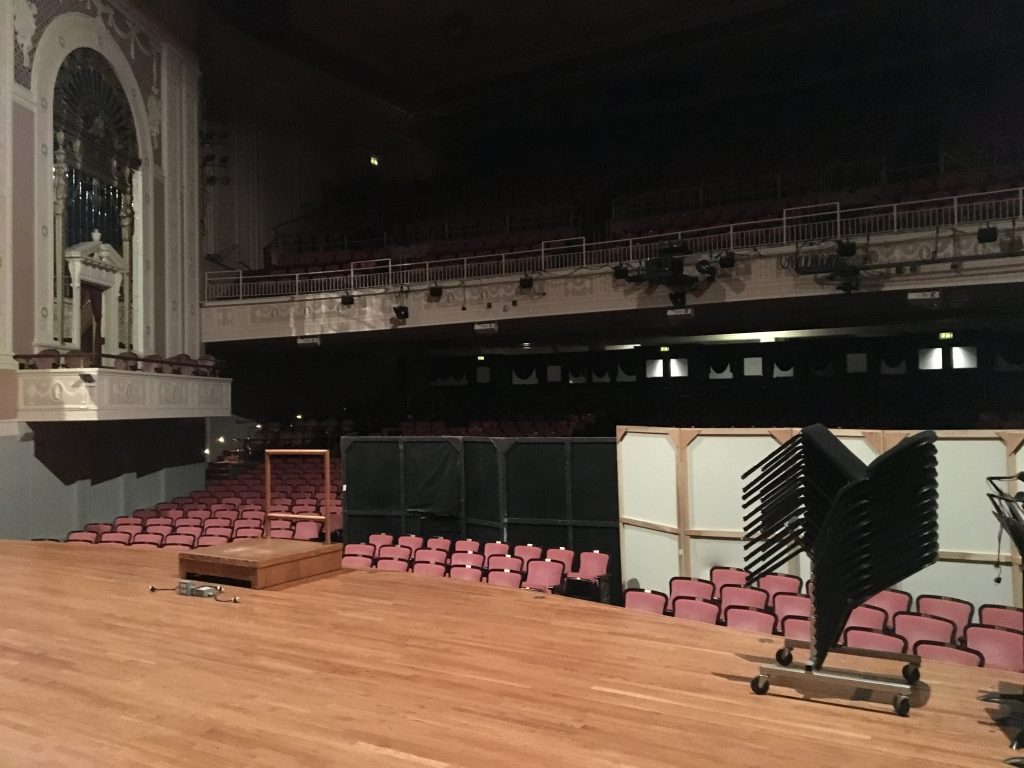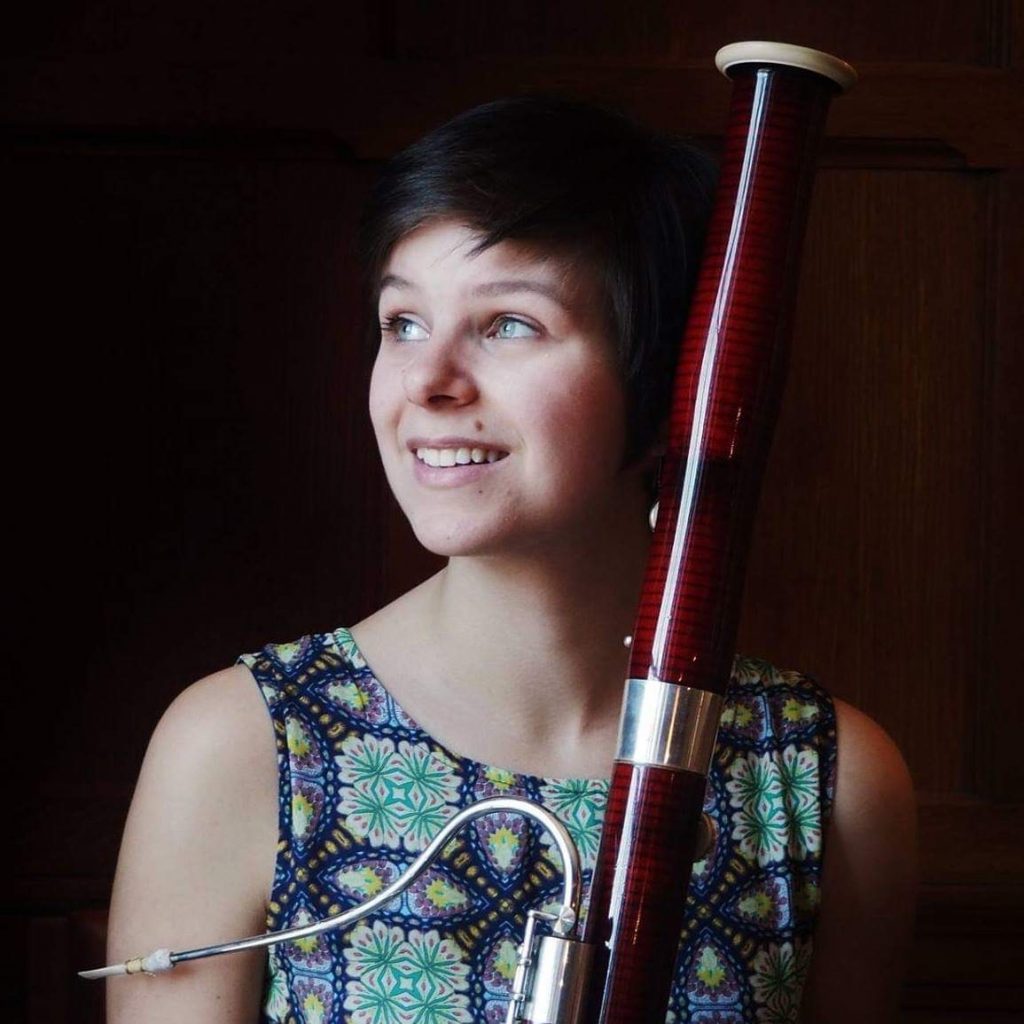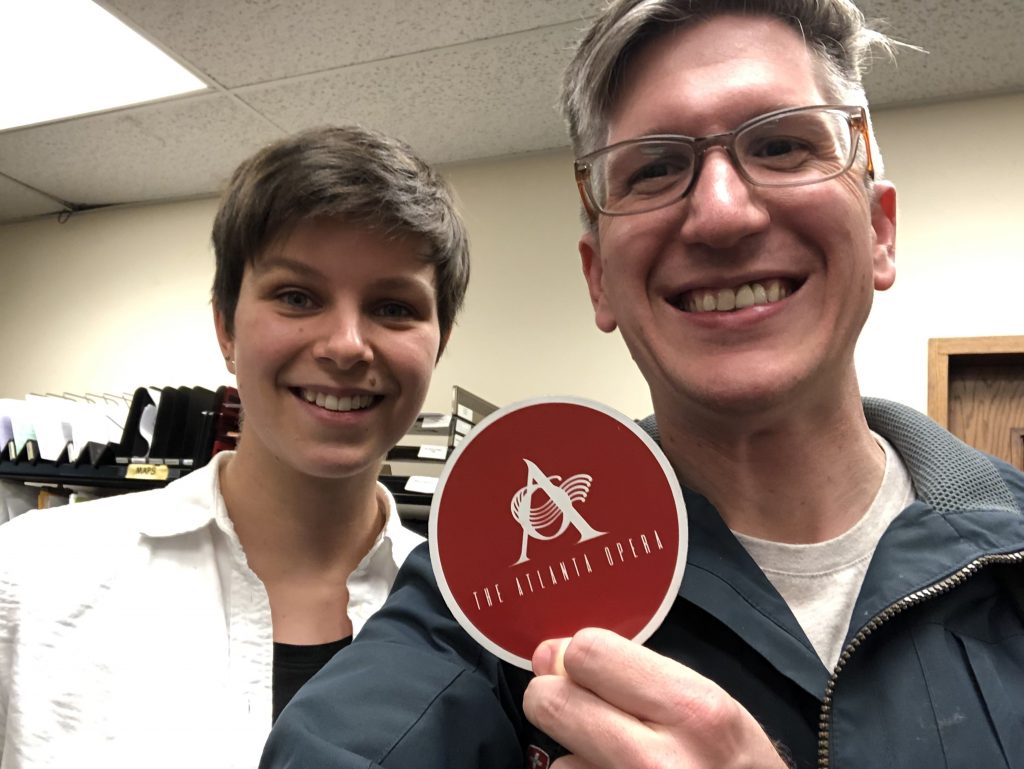Newsletter: February 2020
For the next few editions of our newsletter, we are going to discuss the process by which we invite new musicians to join our orchestra: the audition. Auditions are mostly standard in implementation across the industry, but certain details might change from orchestra to orchestra. Here’s a short overview of our process:
When holding an audition, the orchestra will nominate a committee of musicians to judge each candidate’s performance on a list of excerpts–short snippets of music from the orchestral repertoire that demonstrate various abilities necessary to perform well in the orchestra. There is a wide range of abilities to be tested, from technique to lyricism to passages that are just plain difficult on a particular instrument!

Since there are often hundreds of applicants for a given position, the first round (typically called the preliminary round) will usually consist of only five to ten minutes of playing. This gives the committee a general sample of each candidate’s musicianship and ability while allowing as many people as possible to take the audition.
In order to be as fair as possible, the audition is performed behind a screen. Neither the candidate nor the committee can see each other, and any necessary communication is facilitated through a proctor. Ultimately, the committee will base its decision solely on the playing that they hear.

After hearing the preliminary round, the committee will vote, and candidates who have been judged to play well enough will be advanced to the next round. The process then repeats itself, only this time with fewer candidates, playing more music, sometimes as much as fifteen minutes to half an hour each.
When there are only a few musicians left, the Music Director joins the audition committee, and together, they listen to each remaining candidate play in a final audition round. Afterward, a decision needs to be reached! Generally, the committee and Music Director will decide on a winning candidate, and, if necessary, a runner-up.
For many positions in the ISO, the winning candidate will be invited to what we call the Performance Round of the audition (which is often referred to as a “trial week”), where they will play for a week as a trial member of the orchestra. After a successful Performance Round, the audition winner will be offered a job in the orchestra.
As you can imagine, auditioning can be quite stressful for the candidate, but also for the committee. Next month, we’ll dive deeper into the committee’s role in the process, but for this edition, we asked one of our newest members about her experience auditioning for the orchestra.
Principal bassoonist Ivy Ringel joined the orchestra in September 2019, after successfully completing her audition in January 2019 and her trial week in May 2019. We asked her to share her perspective about being an audition candidate.

I took nine auditions for a wide range of orchestras before winning the job with ISO. Along the way, I won my first job with the Atlanta Opera Orchestra, moving to Atlanta in 2018 directly after finishing school. But I still kept taking auditions for larger orchestras, even immediately after arriving. This is common amongst professional musicians — many of us stay in audition mode perpetually!
Preparation for me is a constant process. I make playlists of the pieces with the various excerpts to listen to on my commute. I study scores, especially with less familiar pieces, so that I know what goes on in the rest of the orchestra. Sometimes, I even examine past audition lists and try to guess what the list for an upcoming audition would be.
But as soon as I have the excerpt list from the orchestra, I like to sort it by familiarity and difficulty. Usually, it will take me around two weeks to learn any excerpts that are totally unfamiliar to me. Then, about six weeks before the audition date, I create a rotation of the entire list for my practice sessions.
I try to play mock auditions for as many people as I can to practice going through the audition process. Preparing for an audition is a lot like training for the Olympics. While we might have a couple of chances to play something in a concert setting, when auditioning, everything needs to be right the first time. Just like a gymnast or high-jumper, it requires lots of specialized preparation to be able to be at your best when you only get one shot.
On top of all the rigorous technical practice, travel considerations must be made. Typically the candidate must pay for all audition expenses, including flight and hotel. I try to arrive early the day before the audition so that I can walk around, practice, and adjust my reeds. If possible, I try to stay close to the hall so that I don’t have to worry about how to get there.
Thankfully, because of my previous success in other auditions, the audition committee invited me to begin this audition in the semifinal round. When I got to my warmup room, I played some scales and slow warmups, and then mentally rehearsed each excerpt in my head without actually playing them on the bassoon.
I try to avoid actually playing the excerpts more than absolutely necessary, but l make sure to check my reeds and make a final decision on which one to use for the round. For me, this all usually takes around 30 minutes, and if there is any extra time I listen to music (usually classic rock) and read a book.
After playing my semifinal round here, I had to wait for a couple hours before finding out that I was one of two candidates who had advanced to the final round. When there’s this much time to wait, I will usually chat with the other candidates, and maybe pick up some food. A couple of the other candidates for this audition were classmates of mine from school, so it was nice to catch up.
I felt much more comfortable playing in the final round than the semifinal. It was nice to already know what to expect and how I would sound on the stage, having already played one round. Having advanced, I knew that the committee liked my playing, so I felt more free to take greater musical risks, and I feel like I played better too.
After the final round, there was more waiting while the committee deliberated. I was nervous this time, and there were far fewer people around that I knew personally, so I kept mostly to myself.
I thought that my final round was the absolute best I could do, but I had no idea if that would mean that I would win. It is a stressful and nerve wracking wait that feels at least ten times longer than it actually is.
For my trial week, I was invited to perform Brahms Symphony No. 3, which is one of my all-time favorite symphonic works. I had never performed it with a professional orchestra. Back home in Atlanta, I threw myself into studying the score, listened to tons of recordings, and played for several people I knew.
At the first rehearsal, I felt surprisingly comfortable playing with the ISO. As the week went on, I enjoyed getting to know the orchestra and woodwind section. It was also fun to have some time to explore Indianapolis, as I didn’t have much time to during the audition.
I had no idea whether I would get the job, but knew that I had prepared well and that I had played the best I could. Funnily enough, the last day of my trial week, when I found out that I would be offered the job officially, was my birthday. Winning the job with the ISO was the best possible birthday gift.

I am so fortunate to be playing with the ISO and am grateful to have time away from auditions. I’m sure that this won’t be the last audition that I take, but at this point, there are only a few big jobs that would be worth leaving the ISO for.
Thanks, Ivy!
While we’ve had a number of new musicians join our ranks through the audition process, one notable chair has been filled. Kevin Lin will join the orchestra as Concertmaster after finishing this season with the London Philharmonic Orchestra.
We’re going to talk more about the process of choosing a Concertmaster next month, because it is a bit more involved than the basic audition process. But it does share a similar final round, where the audition committee invites the entire orchestra to sit in the balcony and share in the experience. Kevin shared his experience in a recent interview that will be published in the coming weeks:
It was a bit daunting to see so many musicians sitting in the upper circle, all of whom have heard what I was about to play dozens of times. But it was nice that the faces were familiar! I made a point to warm up on stage the morning of my audition and kept doing visualization practice while warming up. I went through the audition list that morning as if I was playing the actual audition already!
Once you’ve prepared for an audition, and you can play it through comfortably, it becomes a mental game. If you can put yourself in the right mindset during the audition (given you’ve done all the practicing you need) you will have a very good shot at performing your best. Personally, the actual audition felt quite comfortable since I was in the hall all morning.
In terms of playing to familiar faces, I think it’s a mixed bag. Austin Huntington and I went to undergraduate together, so he knew how I sounded many years ago. It would be disappointing if I showed up sounding worse than I did in school! However, I found this audition to be extremely comfortable as I’ve always found it weird playing in front of a screen. I like seeing who I’m performing to, and playing in front of a screen just seems too sterile, like a test. It’s easier for me to perform during an audition when I can see the people I’m playing for.
Thanks, Kevin! We’re looking forward to much more of your playing in the coming years!
That wraps us our initial discussion about the audition process. Stay tuned for next month, as we delve deeper into the committee’s role.